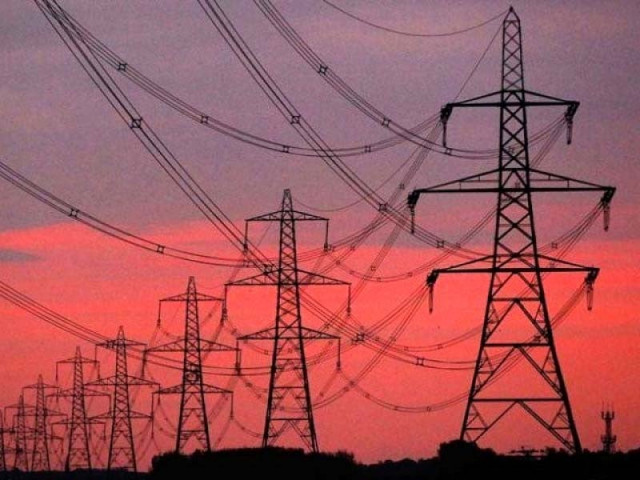Energy efficiency and conservation initiatives
Situation is really bad, although wall and roof insulation technology is available for decades

Two news have been reported in newspapers recently – World Bank’s support for energy conservation in Pakistan, and government’s drive to shift consumption from gas to electricity. The issues have commonality and deserve discussion and suggestions.
Shifting gas consumption to electricity may have been motivated by the continuous decline in gas reserves and supplies. New gas finds have not been there. There is despondency in the gas sector partly due to law and order issues in the potential gas deposit-containing areas.
Liquefied natural gas (LNG) supply was not there as well due to the international situation, where prices have been unstable and increased to unaffordable levels.
The assumption in substituting gas with electricity is that local energy sources like solar, wind, hydro and Thar coal, which are cheaper and abundant, would be used in generating electricity. And if at all, combined-cycle gas-fired power plants would be used, which are efficient and produce cheaper electricity than others.
On the user side, in the industrial sector, the prospects for conversion of thermal users to electricity are much lesser as gas may continue to be the efficient source for thermal applications.
In the case of household users, rich and well-to-do may be able to shift to electricity much easily than the lower-income group.
Electrical appliances are expensive. One may think of the high-income group buying induction cookers for cooking but cannot imagine the low-income group doing so.
For higher-income groups, the options are many such as induction cookers as mentioned earlier, inverter ACs for cooling and heating, roof-top solar and solar water heaters.
Inverter ACs are mostly used for cooling and many owners of ACs continue using gas heaters, although inverter ACs are a clean and good source of heat as well. Perhaps people want options. Comparative prices may incentivise the shift.
There are two options that have been largely neglected by the government and international donors – roof-top solar water heaters (RTSWH) and biogas/ bio-CNG.
Private sector and individual users have been installing RTSWH on their own. China and Turkey have substantial installation of these devices. These are imported from China and can be locally manufactured. Lack of after-sales support has discouraged expansion of demand for this equipment.
Gas heaters may literally be banned if sufficient support is not given by the government, Neeca and possibly financial sector. It costs under Rs100,000 and cheaper credit may boost its expansion.
Similarly, bio-CNG has been neglected. Electric vehicles (EVs) may take time to get popularised. CNG stations are already there and many vehicles already converted. Natural gas and LNG are currently used in vehicles.
CNG use has gone down due to irregular availability. Bio-CNG can increase CNG availability and save natural gas supplies. An example for supporting this argument is that India plans to install 5,000 bio-CNG plants in the next five years. One bio-CNG plant can provide gas to several CNG stations.
Similarly, biogas use in rural households can be promoted. Plastic cylinder biogas producers have been developed which are handy, easy to install and much cheaper than the classical earthen ones.
World Bank’s energy conservation project
The World Bank has offered a $300 million loan to Pakistan for energy conservation, out of which there is a grant assistance of $15 million for studies and consulting work. Earlier, the loan amount was half of this – $150 million.
The history of assistance projects in the energy sector has not been very successful. USAID spent $80 million in the 1980s and onwards. The project helped install Enercon.
However, not much could be achieved, although many studies and paperwork were done. Partly, energy prices and availability issues were not as severe then as these are now. And the associated technologies were not available; things like LED, solar, energy-efficient fans, EVs, etc.
It is hoped that the World Bank will act as a hard task monitor in doling out money. Resources should be directed to end-users than intermediaries.
The situation is really bad, particularly the inefficient building sector, although wall, roof and window insulation technology is available for several decades now.
Posh building areas and designs have evolved tremendously but with hardly any move towards energy conservation. Imagine if building insulation was adopted by the building sector, so many houses and buildings would have opted for it.
Similarly, one gets sad seeing diesel engines driving agricultural pumps in an age where solar PV has become so affordable and reliable.
Fortunately, the government has already launched an initiative in solar area. Cheap credit made available through the World Bank project may be very helpful. World Bank resources would be better utilised if interest rate subsidy cost is provided to local banks and leasing agencies.
Energy-efficient fans have a lot of potential in energy saving and saving the money for end-users, especially lower-income groups. Neeca has already done a lot of work in this respect. An efficient installment financing scheme providing cheap credit can make a lot of difference.
We have indicated some other possibilities in the area of energy efficiency and conservation in the beginning of this article, which may be given consideration by the donors and the recipients. There are many other possibilities, detailing which may pose space limitations.
Opportunities are many. Resources should be spent diligently with maximum involvement of private sector. We never needed energy conservation and efficiency more than ever before.
The writer is former member energy, Planning Commission and author of several publications on energy
Published in The Express Tribune, April 17th, 2023.
Like Business on Facebook, follow @TribuneBiz on Twitter to stay informed and join in the conversation.


















COMMENTS (2)
Comments are moderated and generally will be posted if they are on-topic and not abusive.
For more information, please see our Comments FAQ